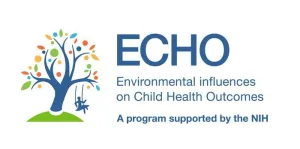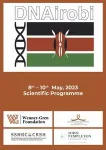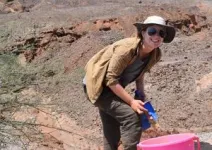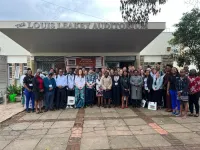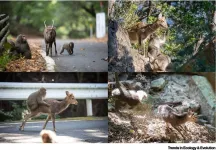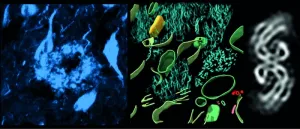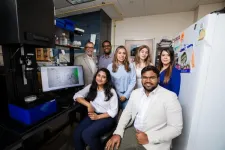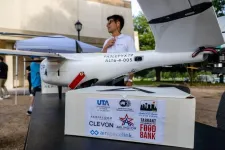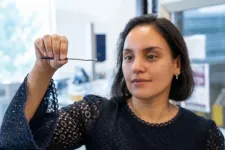(Press-News.org) The COVID-19 pandemic significantly disrupted daily life and has raised concerns about its impact on children’s well-being. A new study from the NIH Environmental influences on Child Health Outcomes Program (ECHO) sheds light on how a neighborhood’s physical and social environment influenced a child’s well-being before and during the pandemic.
According to an analysis of ECHO Cohort data, the neighborhood environment was less likely to be associated with child well-being during the pandemic than in the pre-pandemic period. The pandemic brought unprecedented social changes, altering how people and families interacted with their neighborhoods. For example, during the pandemic, neighborhood safety was less of a concern for children who spent more time indoors at home and less time outside. Likewise, the closure of parks and playgrounds limited access to green spaces and recreation, making those factors less important to a child’s well-being at that time.
The study authors point out that the new findings align with previous research showing a link between neighborhood characteristics and child well-being. For instance, previous studies indicate that living in neighborhoods with higher poverty levels, lower educational attainment, and poorer housing conditions are associated with worse child health outcomes, including physical and mental health, cognitive development, and academic achievement.
“Neighborhood characteristics were widely known to be associated with children's well-being. Until now, we hadn't looked at how the COVID-19 pandemic might change their relationships,” said Xueying Zhang, PhD, of Baylor College of Medicine. "Additionally, the impacts of the pandemic may be different among children of different races."
The study involved 1,039 children from more than 10 ECHO Cohort Study sites across the U.S., mostly between the ages of 11 and 19. These children completed a well-being questionnaire called the Patient-Reported Outcomes Measurement Information System (PROMIS) before (2019 to March 1, 2020) and during (March 1, 2020 to August 31, 2021) the pandemic The PROMIS survey measures mental and physical health as well as peer and family relationships in children.
The researchers then matched U.S. Census tract data with a child’s residential address to examine the neighborhood characteristics. They looked at factors including race, education, occupation composition of residents, house capacities, and property features. They analyzed how these factors were associated with child well-being, considering the impacts of the pandemic and differences across child racial groups.
"Our findings highlight the significance of how child race intersects with the impact of the pandemic on child well-being,” said Dr. Zhang. “Future research could examine how people respond differently to environmental impacts during the pandemic and help to address disparities."
Dr. Zhang led this collaborative research published in Environmental Research.
###
About ECHO: Launched in 2016, the Environmental influences on Child Health Outcomes (ECHO) Program is a research program in the Office of the Director at the NIH with the mission to enhance the health of children for generations to come. ECHO investigators study the effects of a broad range of early environmental influences on child health and development. For more information, visit echochildren.org.
About the NIH: NIH, the nation’s medical research agency, includes 27 Institutes and Centers and is a component of the U.S. Department of Health and Human Services. NIH is the primary federal agency conducting and supporting basic, clinical, and translational medical research, and is investigating the causes, treatments, and cures for both common and rare diseases. For more information, visit www.nih.gov.
END
(Santa Barbara, Calif.) — Birds migrating. Your cat, returning home from a day of roaming. Bees taking pollen to their hives. You, finding yourself back home without actually remembering the drive from work. Animal navigation is a fundamental behavior, so innate that most of the time we don’t notice that we’re doing it. And yet, so many times a day we (and the animals around us) unerringly find our ways to our target locations whether they be old haunts or new venues, from different directions and even in the dark.
How do we do it? That’s the question UC Santa Barbara neurobiologist Sung Soo Kim seeks to ...
CLEVELAND AND NAIROBI — July 11, 2024 — Today, the American Journal of Human Genetics published a perspective piece on the need for an equitable and inclusive future for DNA and ancient DNA (aDNA) research in Africa. The paper, coauthored by an international team of 36 scientists from Africa, North America, Asia, Australia, and Europe, was led by Dr. Elizabeth (Ebeth) Sawchuk of the Cleveland Museum of Natural History and Dr. Kendra Sirak of Harvard University.
DNA from ancient and living African peoples is critical for researchers studying our species’ evolution and population ...
Cooperative hunting, resource sharing, and using the same signals to communicate the same information—these are all examples of cultural sharing that have been observed between distinct animal species. In an opinion piece published June 19 in the journal Trends in Ecology & Evolution, researchers introduce the term “co-culture” to describe cultural sharing between animal species. These relationships are mutual and go beyond one species watching and mimicking another species’ behavior—in co-cultures, both species influence each other in substantial ways.
“Co-culture challenges the notion ...
As container ships the size of city blocks cross the oceans to deliver cargo, their huge diesel engines emit large quantities of air pollutants that drive climate change and have human health impacts. It has been estimated that maritime shipping accounts for almost 3 percent of global carbon dioxide emissions and the industry’s negative impacts on air quality cause about 100,000 premature deaths each year.
Decarbonizing shipping to reduce these detrimental effects is a goal of the International Maritime Organization, ...
Scientists investigating Alzheimer’s disease have determined the structure of molecules within a human brain for the very first time.
Published today in Nature, the study describes how scientists used cryo-electron tomography, guided by fluorescence microscopy, to explore deep inside an Alzheimer’s disease donor brain.
This gave 3-dimensional maps in which they could observe proteins, the molecular building blocks of life a million-times smaller than a grain of rice, within the brain.
The study zoomed in on two proteins that cause dementia– ‘β-amyloid’, a protein that forms microscopic ...
EL PASO, Texas (July 11, 2024) – Researchers at The University of Texas at El Paso have made significant inroads in understanding how nanoplastics and per- and polyfluoroalkyl substances (PFAS) — commonly known as forever chemicals — disrupt biomolecular structure and function. The work shows that the compounds can alter proteins found in human breast milk and infant formulas — potentially causing developmental issues downstream.
Nanoplastics and forever chemicals are manmade compounds present throughout the environment; a series of recent studies have linked them to numerous ...
What is the structure of a particular molecule? And how do molecules interact with each other? Researchers interested in those questions frequently use nuclear magnetic resonance (NMR) spectroscopy to find answers. In NMR, a powerful external magnetic field is employed to align the spins of atomic nuclei, which are then induced to rotate by an oscillating weak magnetic field generated by coils. A change in voltage as a result can be converted to measurable frequencies. Based on this, researchers can identify the molecular structures while also revealing ...
A new report shows that research projects at The University of Texas at Arlington contributed one quarter of a billion dollars—$226.4 million, to be exact—to the national economy through 797 vendor contracts and subcontracts between 2018 and 2022. Of those contracts, 111 were from small businesses and 87 from minority- or woman-owned businesses.
“Research coming from UT Arlington faculty and students not only helps solve some of society’s most vexing problems, but it is also an important economic driver for business development,” said Kate C. Miller, vice president for research and innovation at UTA. “This report makes clear that UTA research ...
The great promise of bacteriophages is that they naturally destroy bacteria, often in situations where antibiotics fail.
Until now, though, there has been no way to access them quickly and efficiently, especially in emergency cases of antibiotic resistant infections.
Researchers at McMaster University, working with a colleague from Université Laval, have developed a simple new way to store, identify, and share phages, making them more accessible to patients who need them.
“Bacteriophages ...
HOUSTON ― The University of Texas MD Anderson Cancer Center’s Research Highlights provides a glimpse into recent basic, translational and clinical cancer research from MD Anderson experts. These advances are made possible through seamless collaboration between MD Anderson’s world-leading clinicians and scientists, bringing discoveries from the lab to the clinic and back.
Recent developments at MD Anderson offer insights into mechanisms regulating metabolic programming and cellular senescence, ...
